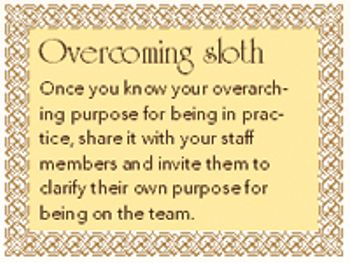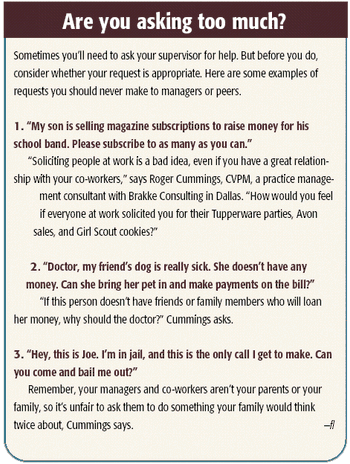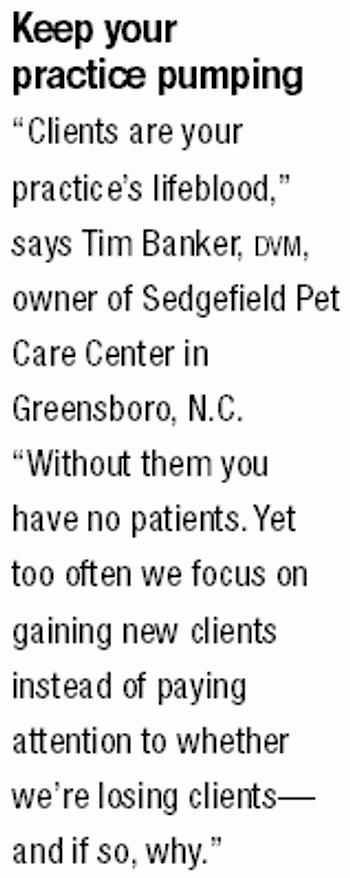
Learning how to coach can greatly improve your veterinary practice. Here are some tips to get you started.
Dr. Brad Swift is founder of the Life on Purpose Institute and helps professionals through writing, speaking and coaching.

Learning how to coach can greatly improve your veterinary practice. Here are some tips to get you started.

Ready to make game-changing plays in pets' health? You must start by opening yourself to messages from your coaches and practice leaders.

Veterinary medicine alone doesn't define you as a person-and it's up to you to discover what else makes your time on earth unique.

Unlock your potential in the veterinary practice with communication that elevates the service you offer-and makes heartfelt connections with the clients you serve.

Don't let fear of failure or change stand in the way of your practice's success. Get everyone on board by building a stronger sense of purpose.

You drove the lonely streets, wondering where they went. You watched for their cat or dog, their appreciative smile, their punctual friendliness. Don't give up. Don't just let your missing clients go-find out where they went, why they left, and maybe, just maybe, get them back.

You can scream and shout, but until you work your communication muscles, you'll never get through to your pet-owning clients.

You can scream and shout, but until you work out your communication muscles, you'll never get through to your veterinary clients. It's time to do better.

It's the things you don't say that can hurt your veterinary practice's health the most. Here are four symptoms to look for, along with tips to open up dialogue.

Ask yourself these questions to gain insight into what's causing problems at your veterinary practice.

Rate your veterinary practice to find out whether your team communication is up to snuff.

Maintaining balance in your life can be challenging with today's frenetic pace, but it's a goal well worth pursuing. Here's a way to do it.

Q A lot of negative tension flows through our practice, and it's undermining our work. How can I help our staff members come together as a team and stop criticizing each other?

Don't let these business mistakes corrupt your practice.

Negative thoughts left unchecked can plague your practice, limiting growth and spoiling harmony. Face the fear, converts say. Here's how.

Tough issues call for tough talks. Using the right approach and communicating effectively will help you get on the same page-and get on with work and life.

From divorce to debt, everyone deals with personal issues?and you may feel you shoulder too big a burden. Use these strategies to manage tough situations when they spill into the workplace.

Debt, relationship problems, illness--it can be hard to cope with the issues life throws at you. And sometimes pesky problems cling so tightly that they follow you to work. Here's how to shake loose.

The veterinarian I work for has anger-control problems. He can be verbally abusive to staff members and sometimes clients. What can I do?

The practice owner won't invest in a piece of new equipment that I think we really need. How can I convince her to buy?

My doctor doesn't like to change. How can I make him more open to new ideas and approaches?

I'd wanted to be a veterinarian since I was 7 years old, but after 12 years in practice, I didn't know if I could stand another day. I was frustrated, tired, and worn out by the constant stresses of practice, including staffing headaches, client turnover, and financial strains. And those stresses were having a profoundly negative influence on my personal life, too.

Think you're communicating--and selling--your services effectively? Here are some key points to consider to help you make powerful and persuasive recommendations to your clients

Growing up in the South, I quickly learned that there were certain subjects one simply should not talk about in mixed company--religion, politics, and money. There are similar touchy topics in business, such as pay raises and compensation plans, staff disagreements, a desire to make important changes in the practice, and disagreement about management styles. Although we'd like to avoid these topics, they need to be discussed.

What should I say when clients answer their cell phones during their pets' exams? I think they'd be irritated if I stopped exams to take personal calls.

Every practice loses some clients. Here's how to find out if your client losses add up to a drop in the bucket or a hemorrhaging wound to your client base--and how to staunch the flow of pet owners leaving your hospital.

Published: January 1st 2013 | Updated:

Published: January 1st 2013 | Updated:

Published: July 1st 2012 | Updated:

Published: January 1st 2012 | Updated:

Published: September 21st 2011 | Updated:

Published: July 1st 2011 | Updated: